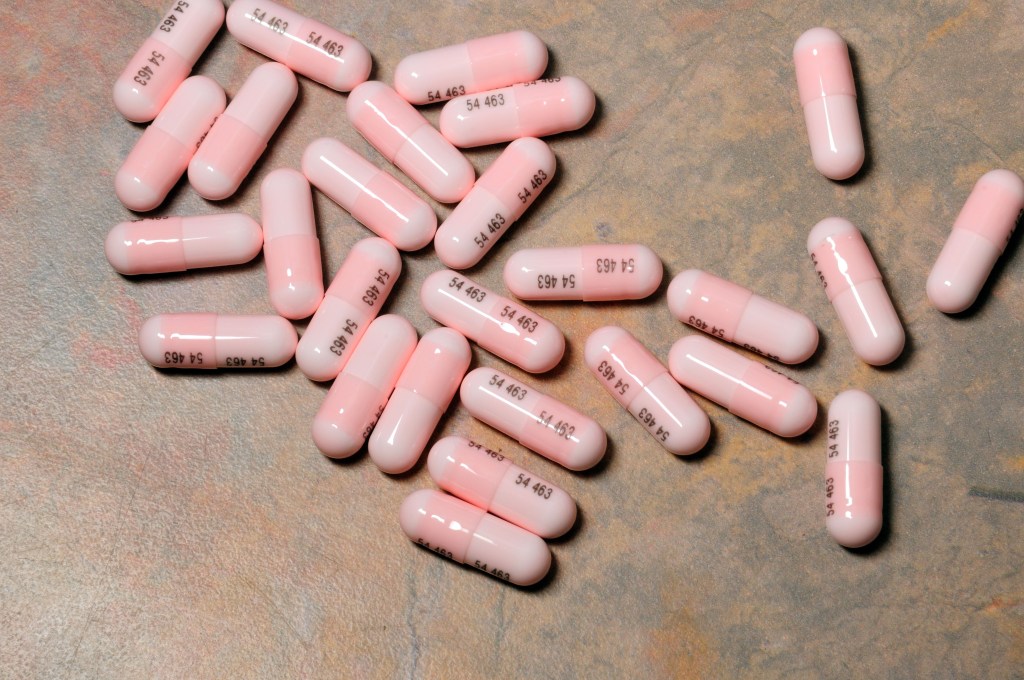American sprinter Dennis Mitchell missed a bronze medal by 0.05 seconds in the Men’s 100-meter Final at the 1988 Olympics in Seoul, South Korea. That event was hyped as “the Greatest Race in History.” But winner Ben Johnson was stripped of his gold medal after failing a drug test; second-place-turned-gold-medalist Carl Lewis had previously tested positive for performance-enhancing drugs; and it has since been rechristened as “the Dirtiest Race in History.” When Mitchell failed a drug test a decade later, he blamed the results on drinking five beers and having sex with his wife four times the night before. “It was her birthday,” he said. “The lady deserved a treat.”
LaShawn Merritt, a two-time Olympic gold medalist in the 400-meter and 4×400-meter relay, said his own positive drug tests were from taking ExtenZe, one of those gas station dick-enlargement-slash-boner pills. “His mindset when purchasing the product was thinking about having sex with a woman,” American Arbitration Association said in its ruling against him. “He admitted he did not look at the label.” And when five members of North Korea’s women’s soccer team failed drug tests during the 2011 Women’s World Cup, North Korean officials said that the players had been struck by lightning before their match, and were subsequently treated with “deer musk gland.” That, they insisted, caused their positive tests.
Videos by VICE
Yes, that’s all a load of BS—except maybe for that ExtenZe thing—but if a professional athlete ever flunks a drug test and then tries to blame it on eating several pounds of spinach, well, that might be legit. Scientists at the Freie Universität Berlin have recently recommended that ecdysterone, a chemical found in spinach, should be added to the World Anti-Doping Authority’s (WADA) list of banned substances because of its potentially steroid-like effects.
According to DW, the researchers conducted a 10-week study of 46 men, who were each given either a placebo or a daily supplement that contained as much ecdysterone as 8.8 pounds of spinach. The participants all followed the same strength training program, but the men who received the ecdysterone pills developed more muscle mass, and had up to three times the strength gains as the placebo group. “Even more relevant with respect to sports performance, significantly more pronounced increases in one-repetition bench press performance were observed,” the authors wrote in their abstract. “These data underline the effectivity of an ecdysterone supplementation with respect to sports performance.”
The researchers said that, based on previous studies involving ecdysterone, they expected the supplement group to outperform the placebo-ers, but not by that much. “Our hypothesis was that we would see an increase in performance, but we didn’t expect it to be that big,” study co-author Maria Parr said. “We recommended to WADA in our report that the substance be added to the doping list. We think that if it increases performance, then that unfair advantage should be eliminated.”
This isn’t the first time that Parr and her team have suggested that ecdysterone should make its way onto WADA’s banned substances list. In 2015, she co-authored a different study called “Ecdysteroids: A novel class of anabolic agents?” that tested the effects of the chemical on rats, and those results showed that ecdysterone could induce the same kind of hypertrophy (muscle growth) as some anabolic steroids. “With respect to doping prevention the high anabolic potency of ecdysterone justifies its classification as an anabolic agent and therefore needs to be listed in the category ‘S1 Anabolic Agents’ of the list of prohibited substances of the World Anti-Doping Agency,” they wrote.
Who knows whether WADA will add ecdysterone to its collection of banned substances, but we look forward to future sprinters or cyclists or soccer players holding press conferences to talk about, like, all that spinach they supposedly ate before their drug tests.




